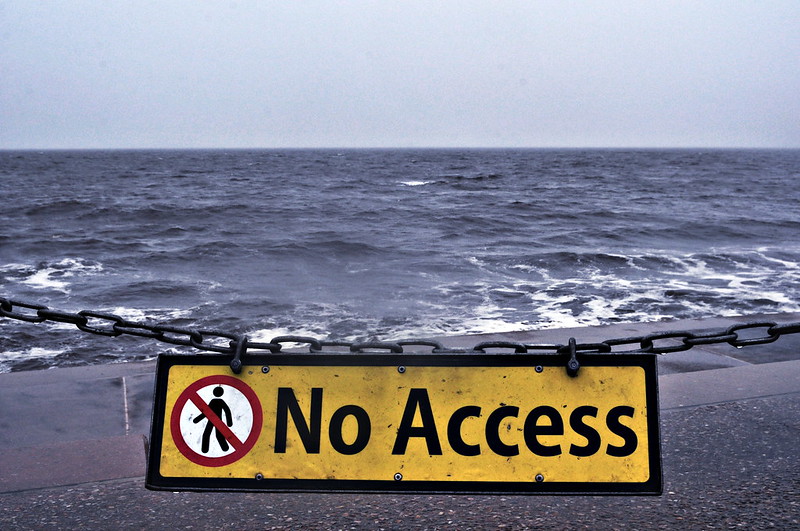Over a fifth of the UK population, or 7 million people, are disabled. As an autistic person who struggles with fluctuating mental health, I’m one of those 7 million.
Disabled people are a diverse bunch, but we all have access needs. Simply defined, access needs are the conditions we require for participation in society on an equal footing with people who aren’t disabled. Because we live an ableist society, our access needs are often ignored.
Being disabled in Britain is experiencing exclusion from daily life because of things beyond your control. It’s an ongoing fight to access things non-disabled people take for granted – education, employment, leisure.
Or at least, that’s what I’d have told you in 2019.
I wrote in The Guardian that summer about barriers faced by autistic music fans who want to see live music, e.g. experiencing sensory overload in crowded gig venues where you’re forced to stand uncomfortably close to strangers.
At that point, no one had heard of Covid.
Many commenters on my article said that my (quite modest) proposals for enhanced accessibility were unrealistic, PC gone mad, etc.
But now that no one can go to gigs the old way anymore, musicians have been forced to improvise. Technology has enabled artists to host virtual gigs, allowing everyone with an internet connection to tune into live performances from the comfort of their home.
For autistics, that means no more gigs ruined by the scent of another concert-goer’s perfume. Wheelchair users no longer need worry that a venue will label their chair a ‘fire hazard’. At last, disabled people aren’t the only ones with no choice but to have a night-in instead of going to the pub.
Increased accessibility through digital means has led to something of a levelling of the playing field between disabled and non-disabled people. But it’s a bittersweet victory; it’s been accompanied by the exacerbation of other inequalities (for instance, we make up 6 in 10 of Covid-related deaths in England, despite being a minority of the population).
And none of the moves towards greater accessibility were made with us is mind. These technological adaptations, while empowering for many disabled people, are borne not of disability rights activism, but of the abled general populace’s (well-founded) fear of Covid.
It has never been more apparent that the world isn’t inaccessible for disabled people because accessibility is an impossible pipedream, but because non-disabled people don’t perceive creating accessible environments as worth the effort. It’s a gut-punch, thinking about how much suffering we’ve experienced, and been told was unavoidable – underemployment, educational exclusion – only for it to be shown so clearly to be the product of decision-makers choosing to disregard our needs.
Feelings of bitterness aside, I worry that the digital alternatives to in-person activities so rapidly normalised during the pandemic will be snatched away from disabled people once things are ‘normal’ again (or indeed, ‘if’). There is a precedent for this: in England, austerity has meant over a decade of devastating cuts to state provisions relied upon by many disabled people for basic quality of life.
Removing the ‘accidental accessibility’ of digital alternatives to in-person interactions will harm disabled people, and it could have particularly dire consequences for disabled workers and learners who began jobs or degree courses during lockdown restrictions. I’m thinking in particular of the small but significant population of disabled people who took their first steps into young adulthood during the pandemic.
Imagine getting your first ever proper job as a disabled person, at a company that is instituting a work from home policy because of Covid. Will these young people be expected to perform to the same standards should remote work stop being an option in the more ‘normal’ future?
Obviously, there are disabled people who prefer a physical workplace, or work in fields that genuinely require face-to-face contact. But what about the ones who, most likely, would have found working in an office more difficult, but have so far been inadvertently shielded from that reality thanks to lockdown conditions?
Right now, it doesn’t seem like workplaces will be fully reopening for a few months but there has already been talk of implementing policies in the future that could disincentivise working from home. In November, Deutsche Bank Research sparked backlash by recommending that employees who choose to work from home post-pandemic pay a 5% tax, which critics argued could disproportionately affect disabled workers.
More recently, warehouse company Segro announced an ‘Agile Working Policy’, which they claim ‘gives our employees the autonomy to decide where they work’. In other words, workers can decide between remote working and office working.
It’s a relief that some employers have decided to shift to a long-term policy of allowing remote work where appropriate, but we can’t rely upon individual businesses to do the right thing; there needs to be pressure from the government on businesses to allow long-term flexible working options.
It’s also important that pressure is put upon universities to ensure that disabled students who’ve only ever known digital learning aren’t placed at a disadvantage by post-pandemic teaching. I struggled with attendance at university due to depression and anxiety. Thankfully, my university was understanding, and my patchy attendance didn’t lead to disciplinary repercussions. My academic department was good at providing lecture recordings, enabling people who missed classes to catch up. But I know that plenty of my disabled peers were significantly less lucky. Will openness to remote learning options stick around after the pandemic, or will disabled students have to worry again that they mind be suspended if they don’t make it to lectures (often held in inaccessible buildings)?
If recent history tells us anything, it’s that we can’t take any progress that is made for disabled people for granted.
Image credit: Clive Varley

